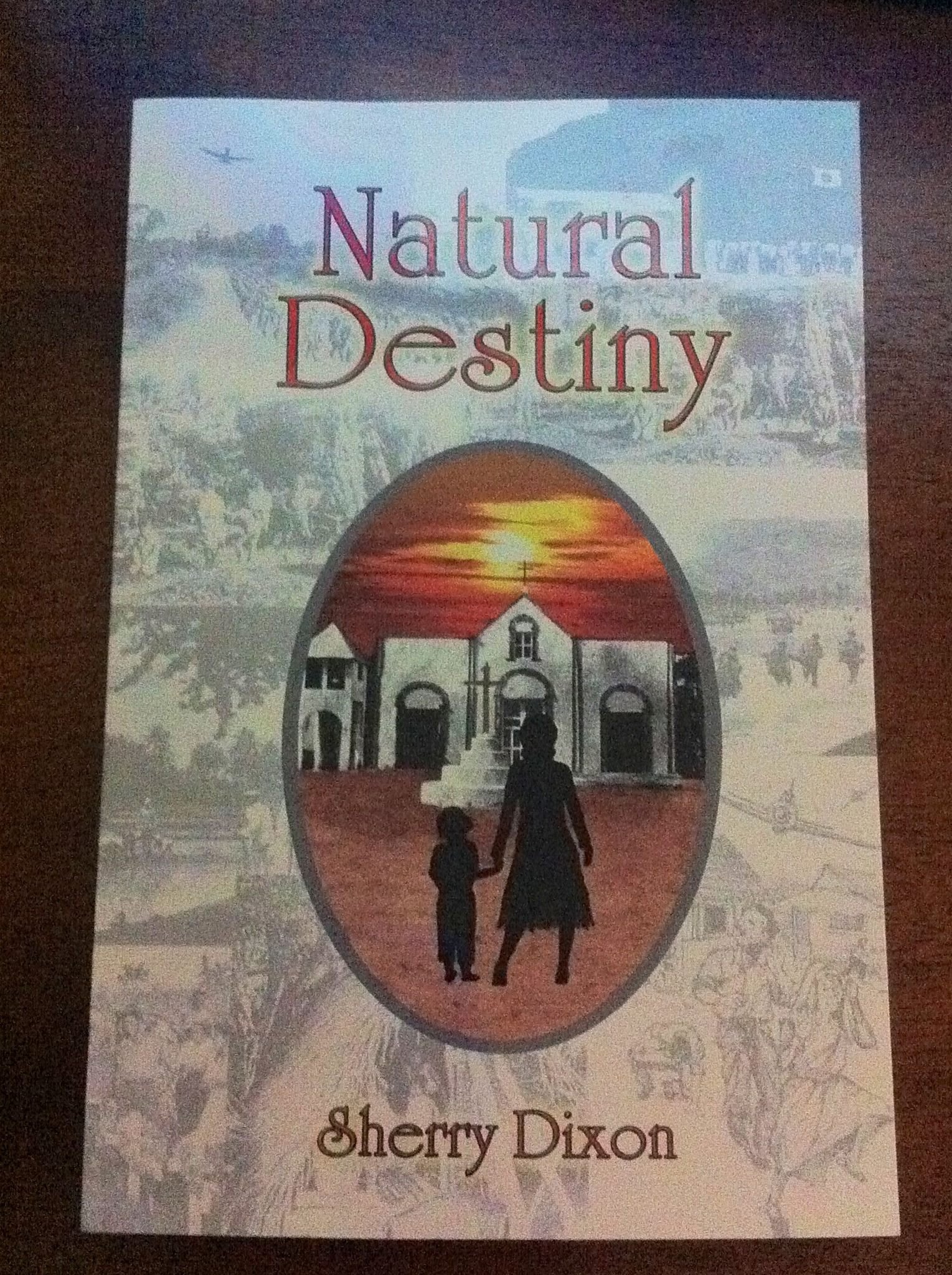
BOOK COMMENTARY
Sherry Dixon. (2012). Natural Destiny. Sherry Dixon: USA. 208 pp. ISBN 978-1477675120
commentary by
Bernard T. Punzalan
Chamorro Roots Genealogy Project™
12 September 2012
Natural Destiny is a narration of events based on a true story of Catalina Bernidita “Bernie” Borja Aquiningoc. The author, Sherry Dixon, is Auntie Bernie’s second eldest child of seven children, documenting and sharing some of her mother’s life experiences as a child and as a prisoner of war during the World War II Japanese occupation of Guam. Auntie Bernie is a Chamorro with familial ties in Saipan, but was raised on Guam.
Sherry professes that the original purpose for writing this book was to honor her mom. It was not until she realized, during her writing group sessions, that many of her peers did not know about Guam, and just how much the Chamorro people suffered, sacrificed and endured the fate of war and imprisonment on their very own homeland. She not only dedicates this book to her mother, but “to the thousands of Guamanians who struggled during the Japanese occupation during World War II.”
Sherry shares with us some very intense details of her mother’s childhood life experiences and also while in the Mannengon prison camp as a child. Auntie Bernie’s faith is constantly tested from unfortunate to horrific encounters. I am certain some will find surprises as I did with certain outcomes or even within the narrated methods of the story. You will surely find that while Auntie Bernie faces certain situations she temporarily tunes out the situation by reminiscing some good memories that seem to help her to unknowingly draw out some of her very own personal resilience. The story also conveys some Chamorro core values with regards to respect and family; the latter whether a blood relative or not.
Many Chamorro people have documented their atrocious experiences of the war. Some have recorded their accounts during their initial war claim application in 1946 and through the many years of testimonial proceedings of Guam’s war claim efforts for judicial parity. However and unfortunately, few Chamorro families have published their stories in a book. Granted, it is not an easy thing to do and many people do not have the resources to do it. This book is a part of Chamorro history and a priceless family legacy to share with others for generations to come. We must not forget the Chamorro peoples’ history and the moral/immoral lessons they have confronted and learned from the past, and which provide for the foundation of their resilience.
I enjoyed reading Natural Destiny (a spot-on title for this kind of story); the manner in which Sherry has organized the chapters, and learning more details of some of the events that took place within the Mannengon concentration camp. Many Americans do not realize that Guam was not just only liberated from the Japanese, but the primary purpose for the U.S. retaking Guam and the Mariana Islands for military strategic purposes indisputably changed the course of World War II in the Pacific. The Chamorro people have sacrificed and continue to sacrifice much more for the United States than people realize. I strongly encourage reading Auntie Bernie’s story.

